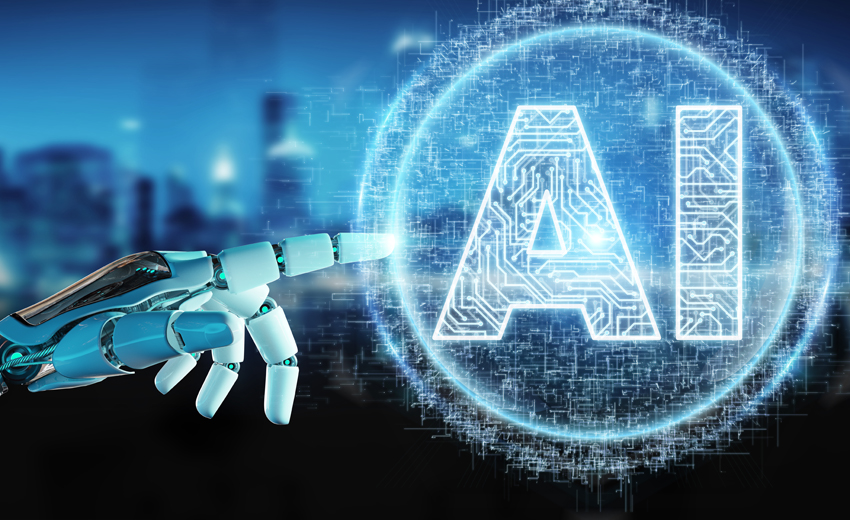The evolution of artificial intelligence from a niche hobby to a fundamental aspect of daily life signals a significant shift in how we engage with technology. As tools become increasingly accessible, individuals are not only consumers but also creators, blurring the lines between personal exploration and societal impact. This democratization invites a diverse range of voices into the conversation, yet it also raises critical questions about the future of human-AI interactions and the responsibilities of those who wield these powerful tools. What consequences does this shift hold for our collective creativity and productivity?
The Rise of Everyday AI
As the digital environment continues to evolve, the rise of everyday AI signifies a notable shift in how individuals engage with technology, transforming complex tasks into accessible tools for creativity and productivity.
This democratizing technology enables users from diverse backgrounds to harness AI-driven creativity, allowing them to create content, design visuals, and even compose music with unprecedented ease.
By lowering barriers to entry, everyday AI nurtures innovation and artistic expression, allowing individuals to investigate their capabilities without requiring extensive technical knowledge.
As these tools become essential to daily life, they redefine traditional workflows, creating an environment where creativity flourishes.
Ultimately, the rise of everyday AI not only improves personal expression but also nurtures a more inclusive technological environment.
DeepAI: Pioneering Accessible Tools
In today's rapidly evolving technological environment, there emerges a pressing need for tools that bridge the gap between advanced AI capabilities and everyday users.
DeepAI stands at the forefront of this movement, pioneering AI accessibility through innovative tools designed for creative expression and productivity. By providing a freemium model, DeepAI democratizes access to powerful functionalities such as AI chat, image generation, and video creation, making sophisticated technology approachable for all.
Founder Kevin Baragona highlights the importance of enjoyment in utilizing AI tools, furthering the platform's mission. As DeepAI continues to expand its resources, the focus remains on enhancing user experience, nurturing creativity, and ensuring that AI innovations are not just for developers but are accessible for everyone.
User Growth and Market Shift
The remarkable accessibility of AI tools provided by DeepAI has catalyzed considerable user growth, illustrating a broader market shift towards embracing artificial intelligence among everyday consumers.
With an impressive 15-fold increase in user demographics from 2017 to 2023, DeepAI has shifted from targeting developers to appealing to a diverse array of individuals seeking creativity and productivity.
This shift has led to heightened user engagement, as the platform's freemium model allows users to investigate various functionalities without financial commitment.
As everyday consumers increasingly integrate AI into their lives, the demand for intuitive tools that improve creativity continues to rise, prompting a reevaluation of market strategies and the potential for AI technologies to redefine personal and professional endeavors.
Overcoming AI Challenges
Maneuvering through the complex terrain of artificial intelligence presents considerable challenges that must be addressed to guarantee the technology's reliability and effectiveness.
One prominent issue is AI hallucination, where models generate inaccurate or misleading information. This phenomenon undermines trust and necessitates rigorous monitoring of model reliability to ensure that outputs meet expected standards.
To combat these challenges, developers must implement thorough testing protocols and refine training methodologies, focusing on reducing hallucination rates and enhancing the accuracy of outputs.
Additionally, continuous user feedback is essential to identify real-world applications and limitations of AI tools.
Future of Human-AI Relationships
Addressing the challenges of AI, particularly issues like hallucination, lays the groundwork for grasping the evolving dynamics of human-AI relationships.
As AI companionship becomes more prevalent, ethical consequences surrounding robot rights and social integration will emerge. The potential for emotional bonding between humans and intelligent machines raises questions about trust dynamics and human dependency.
In this environment, individuals may seek AI not just for utility but for companionship, reshaping societal norms. The future coexistence of humans and AI could lead to transformative interactions, where emotional intelligence and comprehension become critical.
Ultimately, establishing a framework for ethical engagement will be essential in maneuvering this new domain, ensuring that human values remain central to the development of AI technologies.
Emotional Intelligence in AI
Emotional intelligence in AI represents a significant advancement in the quest to create machines that can comprehend and respond to human emotions effectively. This capability hinges on the recognition of emotional nuance and the development of AI empathy, allowing for more meaningful interactions. As AI systems evolve, they can engage users not just with factual accuracy but with an intuitive grasp of emotional context.
| Aspect | Description |
|---|---|
| Emotional Nuance | Comprehension of subtle emotional cues |
| AI Empathy | Responding appropriately to emotions |
| Impact on Users | Improved user experience and trust |
| Applications | Customer service, therapy, education |
| Challenges | Ethical concerns and data privacy |
The integration of emotional intelligence in AI promises significant consequences for human-machine collaboration, paving the way for more compassionate technologies.
The Role of Creators in AI
As AI systems increasingly incorporate emotional intelligence, the role of creators becomes essential in shaping these technologies to respond effectively to human needs.
Creator empowerment drives collaborative innovation, enabling diverse voices to influence AI's development. By integrating understanding from various disciplines, creators can improve AI's ability to understand and empathize with users, ensuring that these tools reflect a broad spectrum of human experiences.
This collaboration nurtures a dynamic environment where creators can experiment and iterate, pushing the boundaries of what AI can achieve.
As the environment evolves, the collaboration between creators and AI will not only redefine technological capabilities but also enable individuals to harness AI in ways that align with their unique viewpoints and aspirations.
Frequently Asked Questions
What Programming Languages Are Used in Developing Deepai Tools?
ProfoundAI tools are developed using various programming languages, primarily Python, leveraging machine learning libraries and programming frameworks such as TensorFlow and PyTorch, which enable efficient model training and deployment across diverse AI functionalities.
How Does Deepai Ensure User Data Privacy and Security?
In an age reminiscent of the industrial revolution, ProfoundAI prioritizes user data privacy through robust data encryption and obtaining user consent, ensuring that individuals maintain control over their personal information while utilizing innovative AI tools effectively.
Are There Any Costs Associated With Using Deepai Tools?
ProfoundAI employs a freemium pricing model, offering free access to basic features while imposing usage limits on premium functionalities. Users can choose subscription plans for improved capabilities, facilitating a balance between accessibility and advanced tool utilization.
What Platforms Will the Upcoming Mobile Apps Be Available On?
The forthcoming mobile apps from DeepAI are poised to revolutionize user experience, aligning with mobile app trends across iOS and Android platforms. This expansion aims to improve accessibility, making advanced AI tools readily available to everyday users.
How Can Users Provide Feedback on Deepai's Tools and Features?
Users can provide feedback on DeepAI's tools and features through dedicated channels, highlighting user experiences and submitting feature requests. This engagement nurtures continuous improvement, ensuring the platform evolves to meet diverse user needs effectively.





